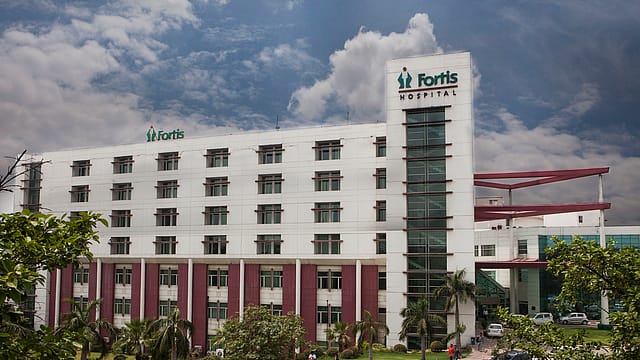Fortis Healthcare: How to kill a hospital
ADVERTISEMENT

Sometime during the afternoon of July 3, 2018—the last day of rebidding for India’s second-largest hospital chain—the newly-constituted board of Fortis Healthcare comprising Indrajit Banerjee, Suvalaxmi Chakraborty, and Ravi Rajagopal received a message. It was from the combine of Sunil Kant Munjal of Hero Enterprises and Dabur Group’s Burman family, announcing their withdrawal from the race to acquire a stake in the beleaguered hospital chain.
The winner of the first round of bidding of May 10 2018, their exit came as a shock because they had always claimed they had given the Fortis board exactly what they had wanted. They had offered to invest Rs 1,050 crore upfront through a preferential allotment of equity shares (Rs 167 per share) and warrants (Rs 176 per share). They also proposed to infuse an additional Rs 750 crore of warrants after receiving shareholder approval.
Unfortunately, they were not the only one to pull the plug. Another serious bidder, private equity major KKR-backed Radiant LifeCare, also backed out of the Fortis deal, leaving the field open for TPG-backed Manipal Hospital Enterprises, and Malaysia’s IHH Healthcare Berhad to battle it out.
While none of suitors clearly spelled out the reasons for their withdrawal, it is clear that they had become jittery as more and more skeletons started tumbling out of the Fortis closet, hurting not just the erstwhile owners—the Singh brothers, Malvinder and Shivinder—but the company as well.
While new revelations by the law firm Luthra & Luthra pointed to the financial impropriety—siphoning off Rs around Rs 494.14 crore through inter-corporate deposits—by the former promoters, the financial health of the hospital has been deteriorating rather rapidly as well. In the January to March quarter of 2018, the hospital chain’s losses mounted to Rs 932 crore from Rs 68 crore in the same period last year. Similarly, its earnings before interest taxes, depreciation, and amortisation (EBITDA) slipped from Rs 41 crore in January to Rs 23 crore in March.
What has queered the pitch further for the bidders is the fact that a fine of Rs 100 crore has been imposed on New Delhi-based Fortis Escorts Heart Institute, and land-related issues in three of its hospitals. The Delhi government’s decision to put a cap on medicines and devices to curb the profits of city hospitals has not helped matters. Profitability will be an issue going forward.
As a source close to one of the bidders points out that “real challenge for the bidders today is the actual valuation of the hospital chain, since no one really knows what else has been swept under the carpet, which will surface over time”. Secondly, the source says “bidders are no longer sure whether the financially distressed hospital chain can be finally turned around even if they were to win the bidding war. There are too many imponderables on the way to take a plunge”.
But brave hearts such as Ranjan Pai, CEO and managing director of Manipal Education and Medical Group (MEMS), are still gung-ho on the asset, and look forward to the challenge of creating India’s largest and finest hospital network. As he adds confidently: “It’s a challenge, and I feel we are best suited to fix all the issues. We understand what needs to be fixed, and hope we get a chance to do the same. There is an advantage to size in healthcare, and putting together the two healthcare systems will unleash the synergies. We want to create a company with highest levels of corporate governance and transparency.”
While many corporate governance experts like Shriram Subramanian, founder and managing director of InGovern Research Services, believe that such allegations against the former promoters are likely to reduce the valuation of the company, it is still not clear whether the existing bidders have reduced their bid.
In fact, in its final bid, the TPG-Manipal combine had proposed to infuse Rs 2,100 crore through a preferential allotment at Rs 180 a share, which would allow it to pick up a 18.4% stake in Fortis at a valuation of Rs 9,403 crore. It planned to buy out SRL Diagnostics’s PE investors for Rs 1,113.4 crore. In the third stage, the consortium led by Pai suggested it would merge Manipal Health Enterprises with Fortis Healthcare through a reverse merger after restructuring the SRL Diagnostics’ board.
IHH Healthcare Berhad, too, had planned to put in Rs 7,400 crore for an over 50% stake in Fortis at Rs 175 per share, while KKR-Radiant proposed to purchase only the Mulund hospital at an enterprise value of Rs 1,200 crore, which, it said, would provide immediate liquidity of Rs 680 crore to Fortis Healthcare.
As part of its non-binding offer, it proposed to spin off SRL Diagnostics so that Fortis could run an independent competitive sale process. It also proposed a demerger of the hospital business into a new company, excluding Fortis Healthcare’s stake in SRL Diagnostics, and said it would launch an all-cash open offer for shareholders of this new company at Rs 126 per share.
While the winner for the hospital chain will be announced within days, one thing is clear: The last word on the Fortis Healthcare saga has not yet been said. Many more skeletons will stumble out of the Fortis cupboard, more allegations of financial misdoings and other issues will be made not just against former promoters Malvinder and Shivinder, but also against pliant former board members Tejinder S. Shergill, Harpal Singh, Sabina Vaisoha, and Brian Tempest, and members of the audit committee of the company. They will not be absolved of the blame for virtually destroying one of the country’s best hospital chains that will require a lot of hard work to bring it back to its former glory, if at all.